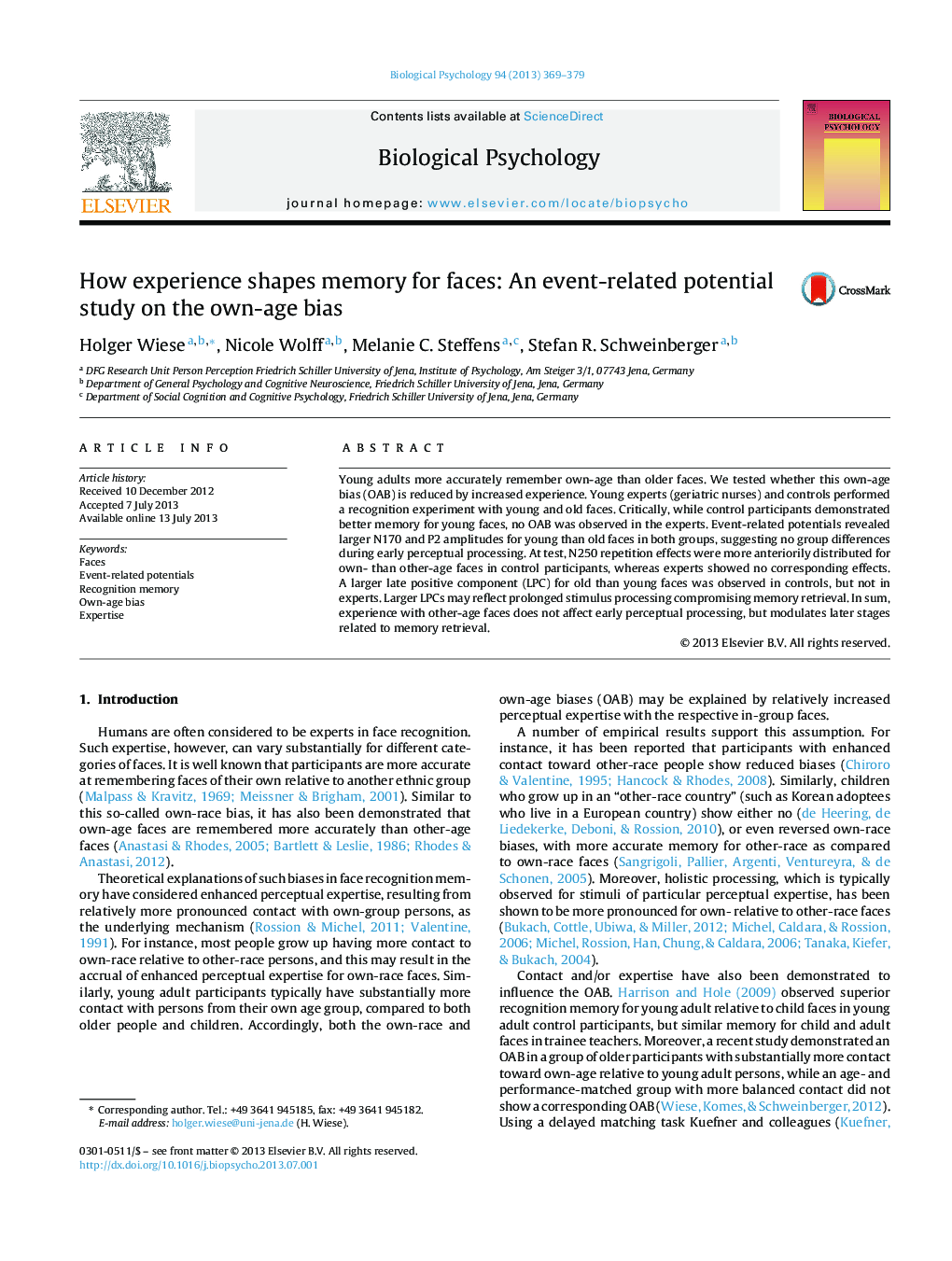| Article ID | Journal | Published Year | Pages | File Type |
|---|---|---|---|---|
| 920950 | Biological Psychology | 2013 | 11 Pages |
•Young adults showed better memory for young than old faces (own-age bias).•Young experts for old faces (geriatric nurses) demonstrated no such bias.•Perceptual event-related potentials (ERP) were similar for controls and experts.•ERPs of experts and controls differed at stages accompanying memory retrieval.
Young adults more accurately remember own-age than older faces. We tested whether this own-age bias (OAB) is reduced by increased experience. Young experts (geriatric nurses) and controls performed a recognition experiment with young and old faces. Critically, while control participants demonstrated better memory for young faces, no OAB was observed in the experts. Event-related potentials revealed larger N170 and P2 amplitudes for young than old faces in both groups, suggesting no group differences during early perceptual processing. At test, N250 repetition effects were more anteriorily distributed for own- than other-age faces in control participants, whereas experts showed no corresponding effects. A larger late positive component (LPC) for old than young faces was observed in controls, but not in experts. Larger LPCs may reflect prolonged stimulus processing compromising memory retrieval. In sum, experience with other-age faces does not affect early perceptual processing, but modulates later stages related to memory retrieval.
